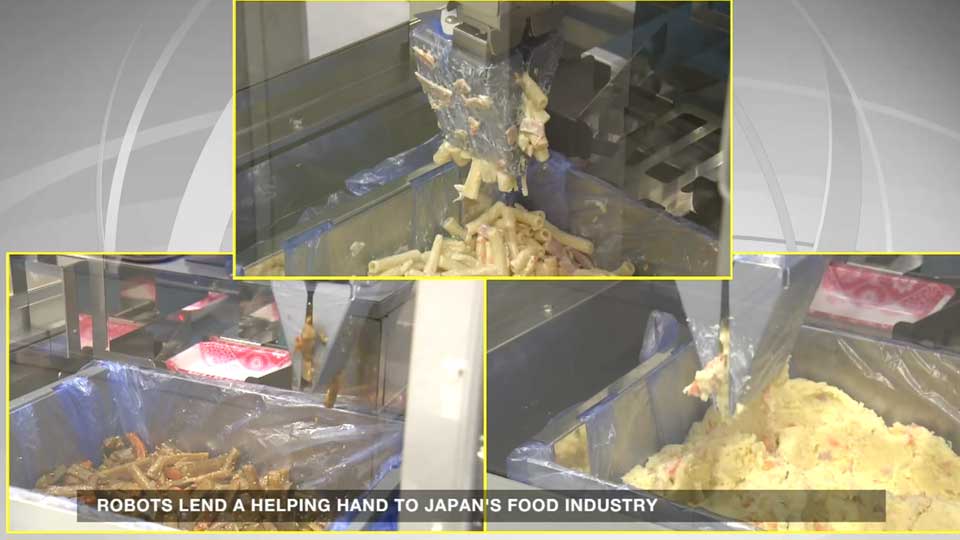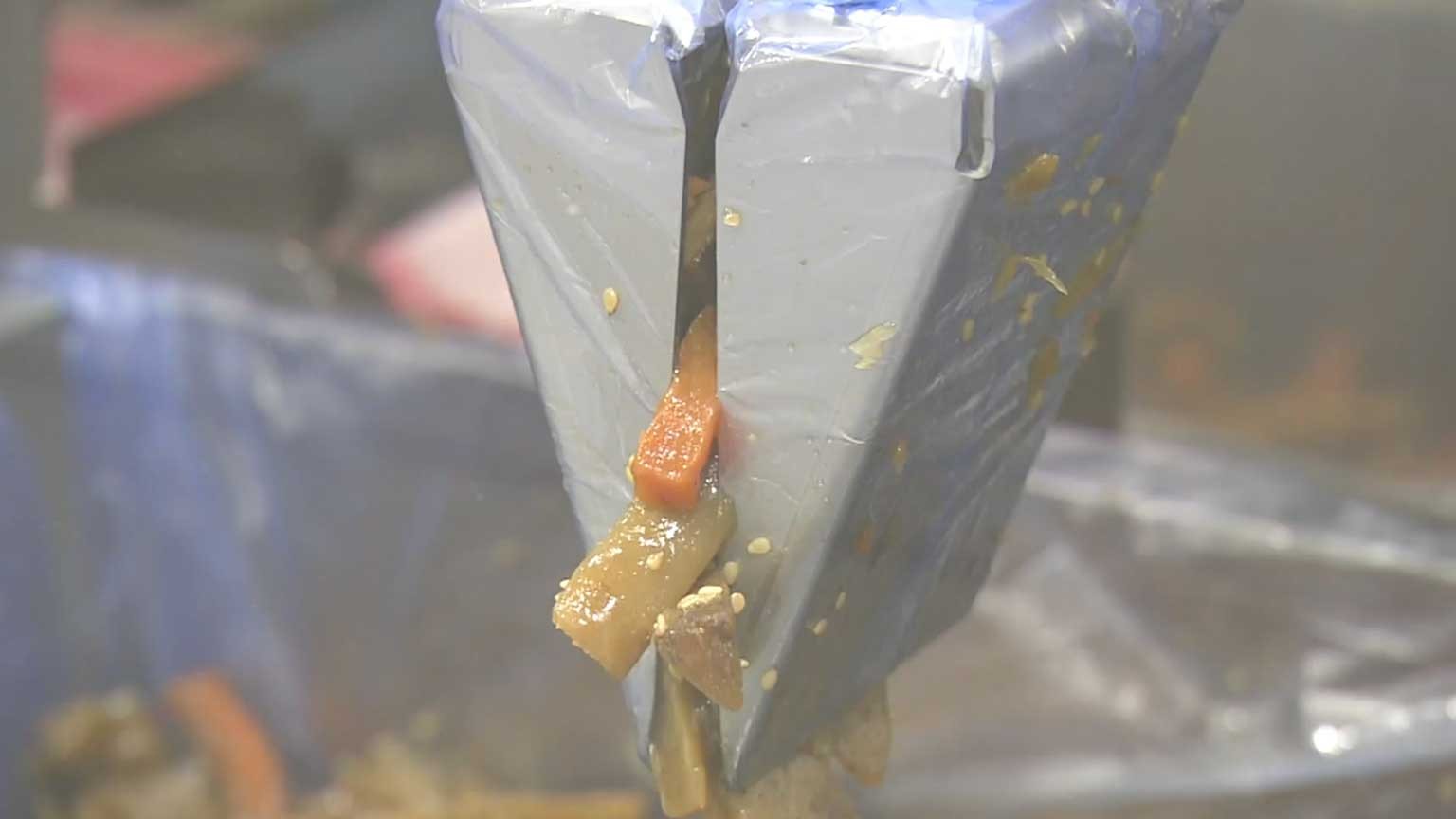Delibot, developed by Connected Robotics, can fill and package 250 food containers per hour. An average worker can do 300 to 400 ― but robots never sleep.
Industry plagued by low productivity
Labor productivity in the food processing industry is very low compared to other manufacturing sectors, such as machinery and chemicals. The Ministry of Industry puts the rate at only about 60% of the national average.
The problem is partly due to the many intricate steps involved in preparing food, such as removing small bones from fish and packing ingredients into cans.
Those tasks largely rely on humans, who cannot be easily replaced by automation.
While items like auto parts have a clearly defined shape, many foodstuffs do not. Workers need to use their own judgment to determine how to pick up, for example, 100 grams of a certain food, a job that confounds many robots. Moreover, some foods are soft and sticky, making them very difficult for robot hands to grasp.
Deli food-serving robot
Delibot has a pair of robotic hands which can locate the position of a heap of potato salad in a case, scoop exactly the right amount, and drop the food into a plastic container. It then places the portions on trays that pass by on a conveyor belt.
The device can be adjusted to accommodate foods of different sizes, textures and softness.
A supermarket in Japan has been using four Delibots since last year. They are tasked with packaging six different items, including potato salad and tofu paste.

Engineering fuses robotics and AI
Connected Robotics fused advanced hardware and AI technologies to create Delibot.
Weight sensors in the arms measure the food in the container and determine how much the device needs to move its hands to grasp the portions.
The engineering team intensively researched and developed the shape and surface of the hands so that they can accurately and neatly serve precise amounts of different foods.
For example, to get around the problem of sticky potato salad, the engineers decided to cover the hands with special vinyl.
Delibot's creator aims for space
Sawanobori Tetsuya, President and Founder of Connected Robotics, studied computer science in graduate school before entering the restaurant industry.
He discovered how labor intensive food preparation can be, with its many repetitive and excruciating tasks. The experience prompted him to establish a company that would build robots to reduce the food industry's reliance on manual labor.

Before Delibot, his company developed and sold other robots, including one that automatically boils noodles and another that makes swirls for soft-serve ice cream.
Sawanobori said the company now aims to cut manufacturing costs and mass-produce Delibot devices.
"There are many small companies in the food industry and many of them cannot afford high-end custom-made robots," he said.
He said he hopes to expand his business overseas. If Delibot can meet the demands of Japanese customers, who Sawanobori says are very exacting about the quality of the food they offer, he believes it should be marketable in other countries.
Sawanobori's ultimate goal as an entrepreneur is to build a food machine that can be used in space. But first, he wants his robots to help solve some of the food industry's problems on the ground.


